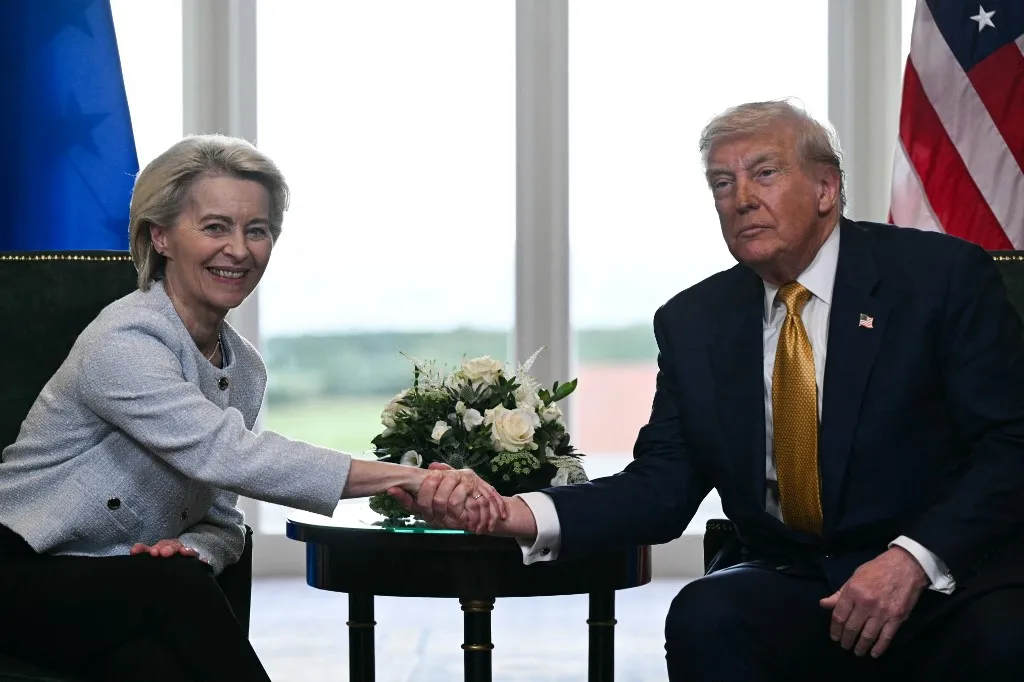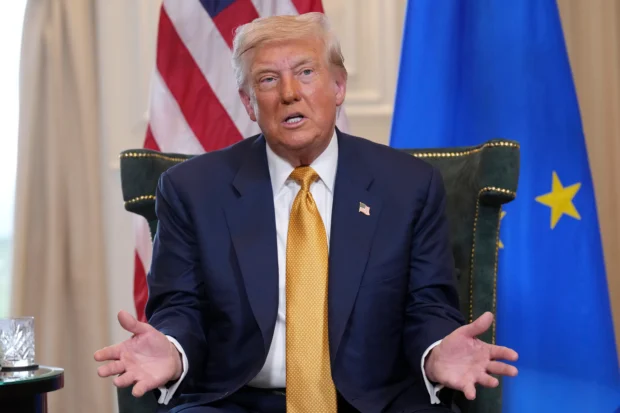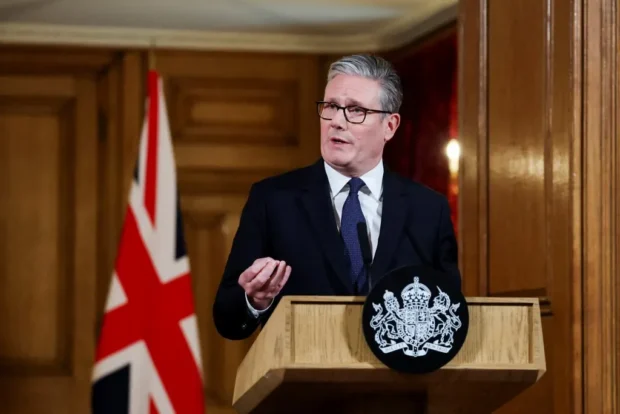
The United States and European Union have reached a comprehensive trade agreement imposing a 15 percent import tariff on most EU goods, preventing a potential transatlantic trade war.
The agreement was negotiated Sunday between US President Donald Trump and European Commission President Ursula von der Leyen in Scotland, ahead of an August 1 deadline for introducing higher tariffs.
Trump characterized the deal as the “biggest deal” ever made, while von der Leyen emphasized it would provide necessary “stability” and “predictability.” However, European leaders have expressed mixed reactions to the agreement with the EU’s largest trading partner.
Danish Foreign Minister Lars Lokke Rasmussen acknowledged the compromise nature of the deal, stating: “The trade conditions will not be as good as before, and it is not our choice, but a balance must be found that stabilises the situation and that both sides can live with.”
Finnish Prime Minister Petteri Orpo welcomed the “much-needed predictability to the global economy and Finnish companies,” while advocating for continued efforts to “dismantle trade barriers” since “only free transatlantic trade benefits both sides the most.”
French Prime Minister Francois Bayrou offered sharp criticism, calling it “a sombre day when an alliance of free peoples, brought together to affirm their common values and to defend their common interests, resigns itself to submission.”
German Chancellor Friedrich Merz expressed relief that the agreement “succeeded in averting a trade conflict that would have hit the export-orientated German economy hard.” He highlighted benefits for the automotive industry, where current 27.5 percent tariffs will be reduced to 15 percent. However, a government spokesperson indicated Berlin sees need for further negotiations, particularly regarding steel and aluminum sectors.
Hungarian Prime Minister Viktor Orban delivered harsh criticism of the agreement: “This is not an agreement … Donald Trump ate von der Leyen for breakfast, this is what happened, and we suspected this would happen as the US president is a heavyweight when it comes to negotiations, while Madame President is featherweight.”
Irish Trade Minister Simon Harris provided measured support, noting the deal offers “much-needed certainty” for businesses in the world’s “most integrated trading relationship.” While regretting the 15 percent baseline tariff, he emphasized the importance of certainty for “jobs, growth and investment.”
Italian Prime Minister Giorgia Meloni expressed cautious optimism, stating it was “positive that there is an agreement” while noting she needed to review details for proper assessment. Speaking from Ethiopia, she warned that “trade escalation between Europe and the United States would have had unpredictable and potentially devastating consequences.”
Romanian Prime Minister Ilie Bolojan welcomed the agreement as “a good omen” that “eliminates present unclearness which caused disruptions and uncertainties in transatlantic trade relations.”
Spanish Prime Minister Pedro Sanchez offered reluctant support, backing the deal “but without any enthusiasm.” He praised von der Leyen’s “constructive and negotiating attitude” while maintaining his reserved stance.
Swedish Trade Minister Benjamin Dousa provided a pragmatic assessment: “This agreement does not make anyone richer, but it may be the least bad alternative.” He noted the positive aspect of creating “some predictability” for Sweden based on initial evaluation.
The varied responses reflect the complex challenge facing European leaders in balancing economic relationships with their largest trading partner while addressing domestic concerns about trade conditions.












Be the first to leave a comment